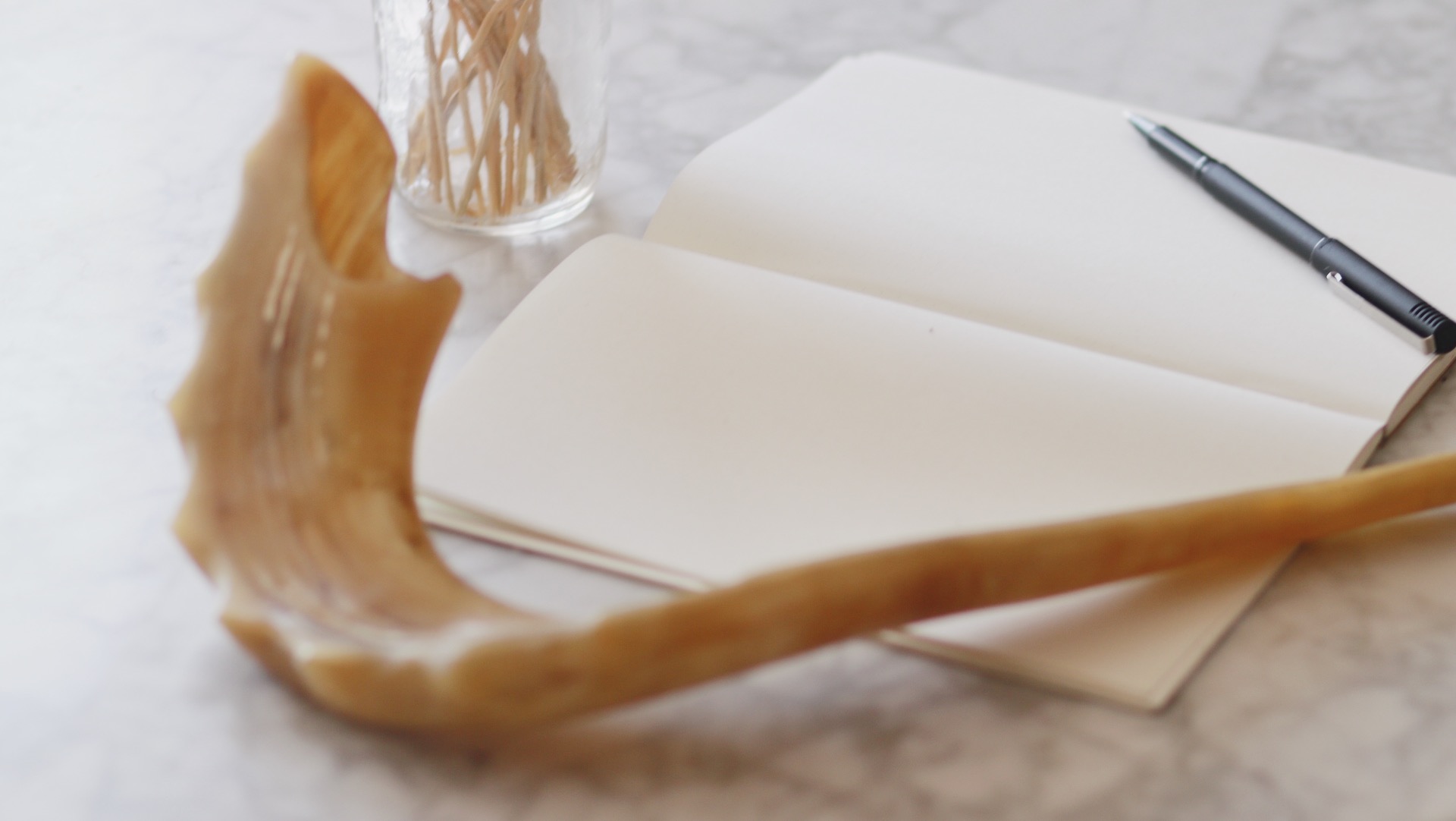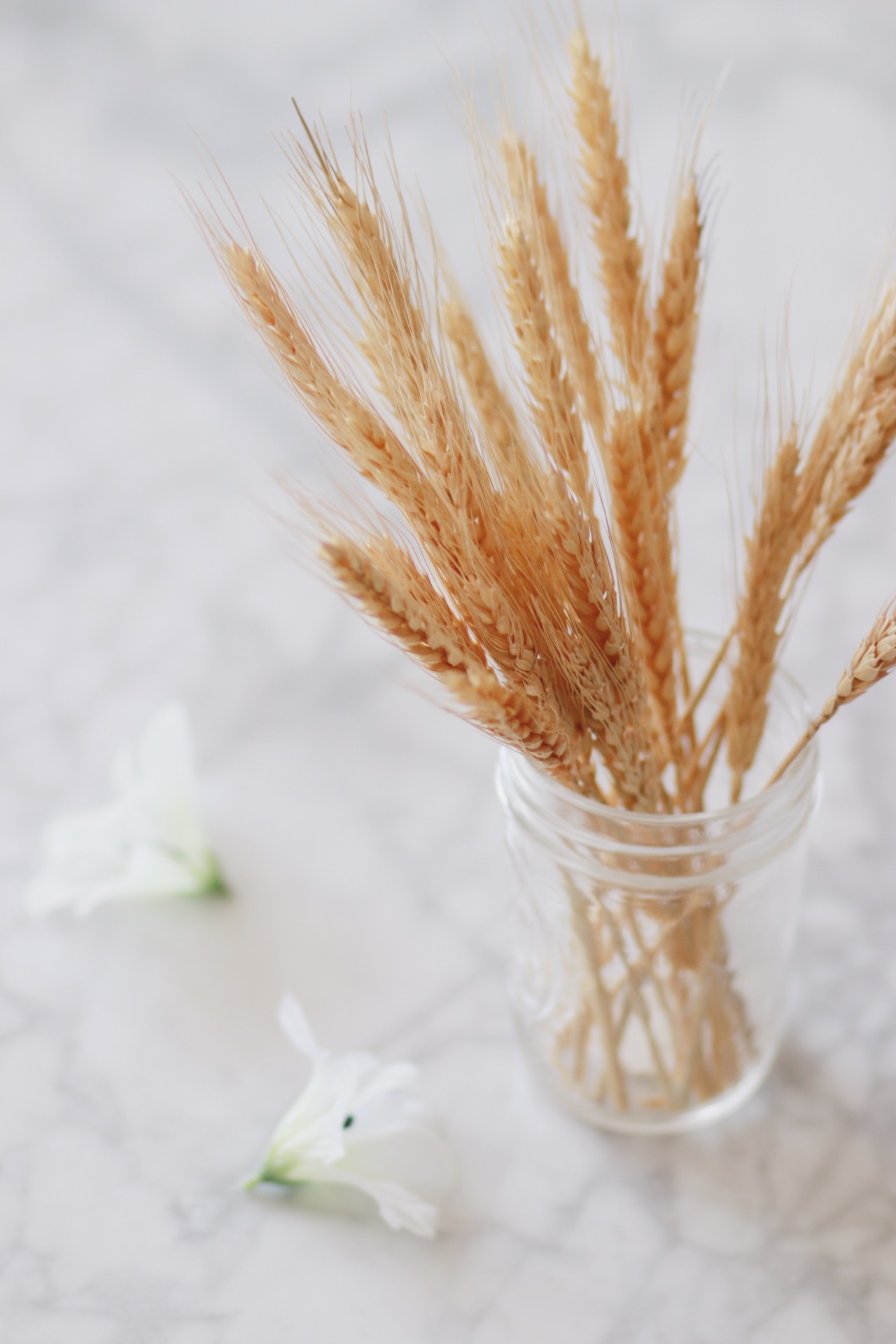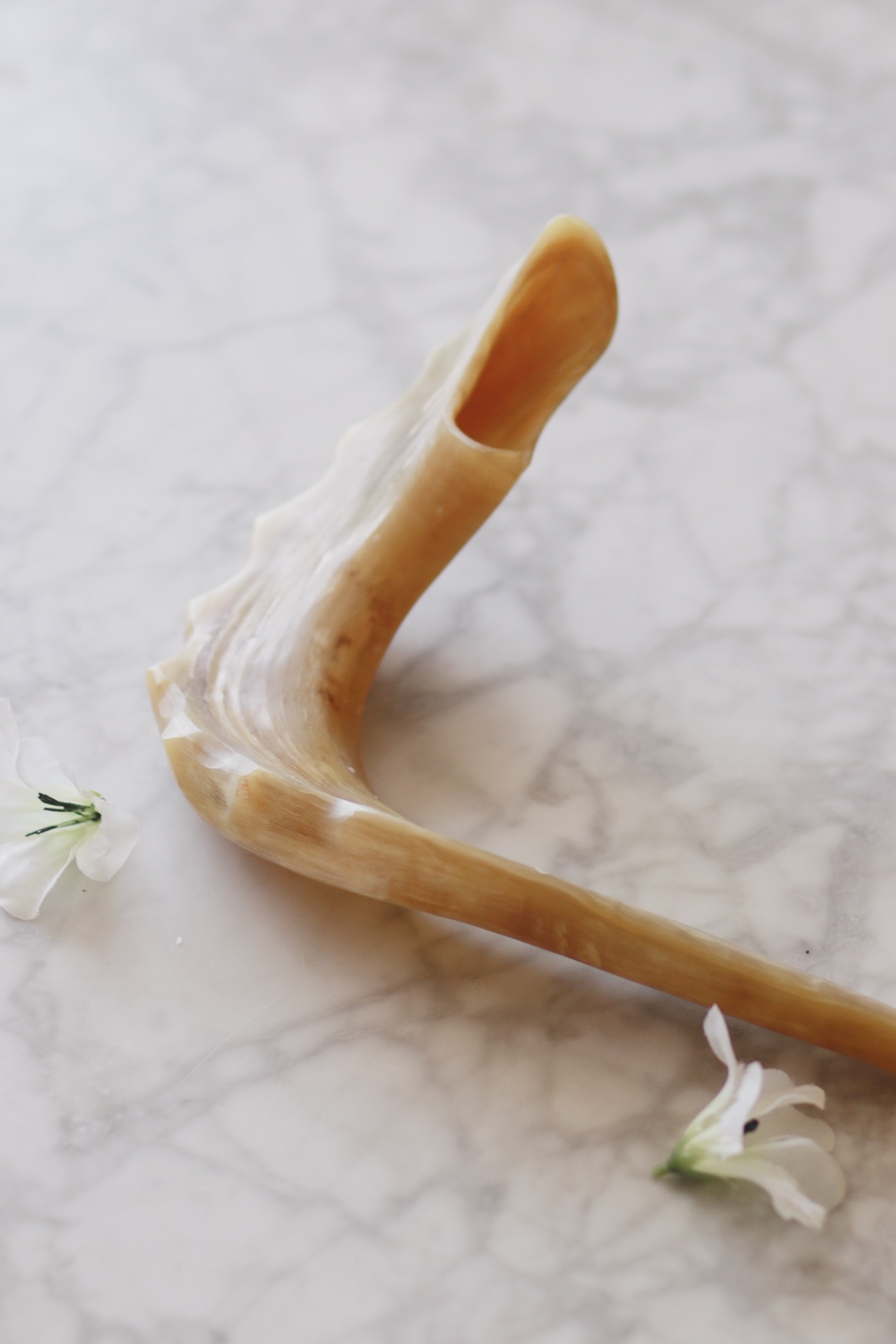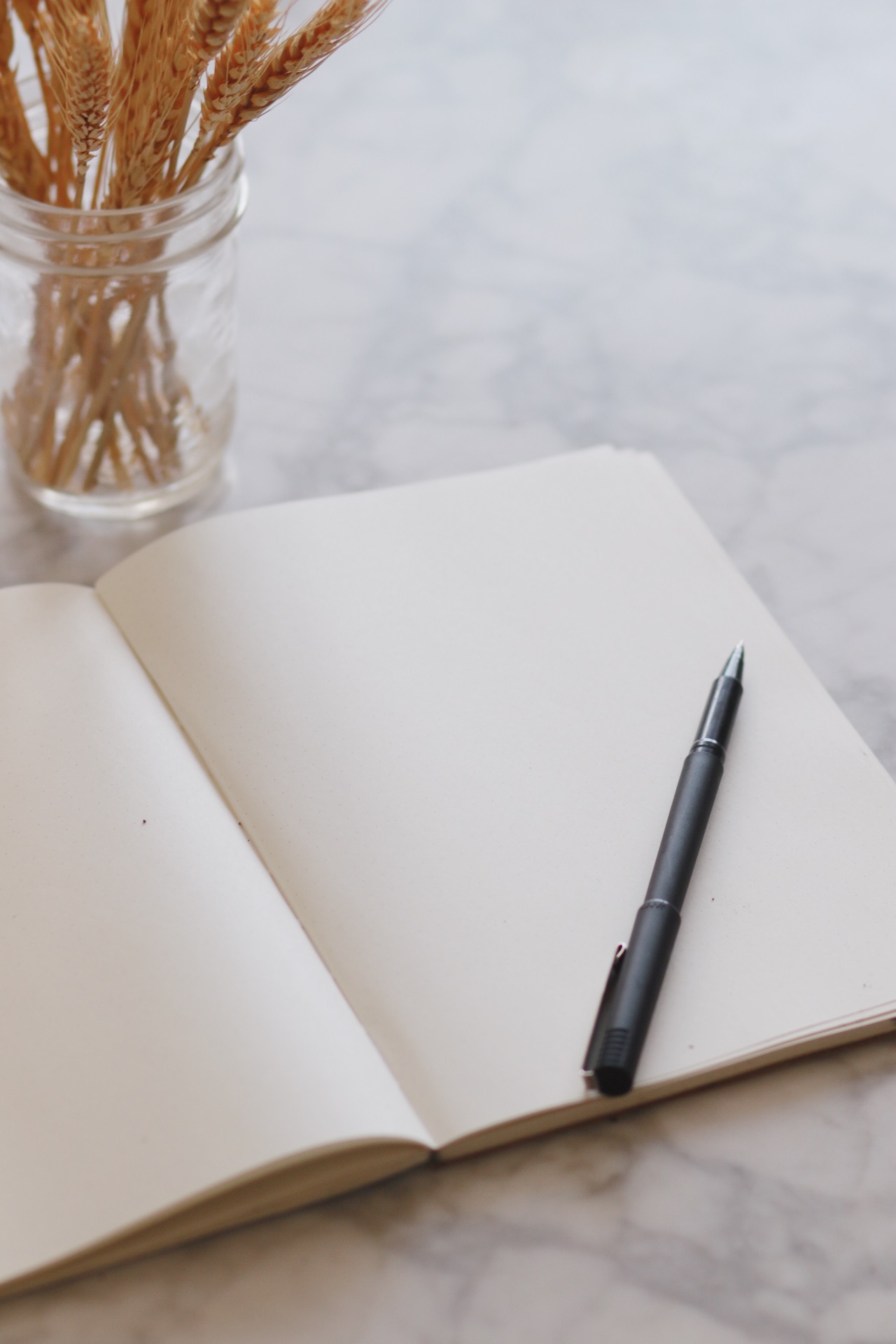On a scale of 1 to Barbra Streisand cloning her dogs, how weird would it be for me to admit that I couldn’t sleep last night because I was so excited to publish this video?
I hope it’s just, like, a 7.5 or something, because…I really couldn’t. I’ve just been so, so excited to bring you this brand-new series for a while now. It’s called “Jewish at Home,” and the idea here is to share simple, spiritual practices and tangible, at-home tools to help you keep your Judaism alive even in this time of disconnect and distance. (I wish I’d been able to publish videos even sooner in the year, but, well, each one takes approximately ~83 years for me to film and edit. This is a one-woman show, friends; gimme a little break.)
But back to the series. It’s just become pretty clear that we won’t be gathering together again for quite some time, and many of us (*raises hand*) are sorely missing the Jewish togetherness and spiritual connection that comes with said gathering: Shabbat dinners, High Holiday services, and in-person celebrations. With these new videos I’ll be publishing throughout 5781, I hope to make that distance a little easier, and to give you the tools to own your Judaism at home.
Some might even say that’s why it’s called “Jewish at Home.”
Have I run this into the ground yet or should I keep going.

Oh! But the best part, of course, is that through this series, you guys get to meet one of my biggest inspirations and mentors: Rabbi Elizabeth Bonney-Cohen. I’m so thankful for her belief in this project and blog, and for the wisdom and incredible eloquence she’s now bringing to it. Rabbi EBC currently serves as an Assistant Rabbi and Director of Outreach & Innovation at Congregation Kehillath Israel in Brookline, Massachusetts. She’s an alumna of the Wexner Graduate Fellowship and Hillel International’s Office of Innovation Fellowship for Rabbinic Entrepreneurs, and she holds an M.Div. from Yale Divinity School and an M.J.Ed. from Hebrew College.
A convert to Judaism herself, Rabbi EBC understands what it feels like to be intimidated by the learning curve that is so often a barrier for people of all backgrounds—whether they were born to Jewish parents or not. It’s because of, and not in spite of that background that she’s such a magnetic leader, and it’s why she’s so driven to bring inspiring and empowering Judaism to all who seek it.
And you KNOW I love that.
Also, how do you not smile listening to her speak?
Okay. Let’s learn some things about the powerful, beautiful month ahead of us:

What is Elul?
At its most basic, Elul is simply the name of the last month of the Jewish calendar year. But it’s also much, much more than that: It’s the time of reflection, intention-setting, and preparation that leads up to Rosh Hashanah, the Jewish New Year. We’re encouraged to spend it meditating on the events of the past year, seeking forgiveness from those we’ve wronged and from G-d, and conducting cheshbon hanefesh (“accounting for the soul”). During this time, we also practice teshuva, which is sometimes translated as “repetenance,” but really means “to return.” In Elul, we strive to return to our most authentic selves, to divine balance, and to a better relationship with those around us.
It’s written in the Talmud that “in the place where the repentant stand, even the completely righteous cannot stand.” In other words, those who see the error of their ways and actively choose to become “better” are appreciated and lauded in Judaism—perhaps even more so than the “completely righteous.” There’s a strong emphasis and value placed on self-awareness and earnest self-improvement. As a people, we praise those who strive to change, to actively seek out forgiveness, and to reform themselves.
Another super important aspect of this month is hidden in its name: The four Hebrew letters that make up the word “Elul” are thought to be an acronym for the commonly cited phrase, “Ani l’dodi v’dodi li” (“I am my beloved’s and my beloved is mine,” Song of Solomon 6:3). Many believe that the word “beloved” here refers to G-d, and that Elul is therefore a time during which we draw closer to the divine.
Along those same lines, you’ll often hear people say that during the month of Elul, “the king is in the field.” The “king” in that phrase is also thought to be G-d, and so this metaphor, too, encourages us to think of that divine presence as stepping down from a far-away palace or castle to join us in “the field”—our earthly realm—during this time. For that reason, many think G-d is closer or more accessible to us in Elul. That’s another reason why this month represents a good opportunity to work on and deepen that divine relationship.

How can I make Elul meaningful at home?
In addition to meditating and generally preparing, there’s actually a ritual practice of blowing the shofar each morning. You’ve likely come to associate this instrument with Rosh Hashanah and hearing it in services (I did!), but many Jews use it for themselves each morning during the month of Elul. It’s a practice of awakening, Rabbi EBC reminds us. When we hear the sound of the shofar, we’re summoned to wake up to this time of introspection and change.
Many Jews also recite Psalm 27 each morning (you can find it in full here, and read more about its significance here) and Sephardim typically begin reciting selichot— communal, penitential prayers—every day of Elul.

You might also try taking up a journaling practice during Elul as a form of actively sorting through and making tangible the things you’re hoping to change or seek forgiveness for. I’ve got you covered on that front with a 29-day journaling challenge full of prompts and inspiration to help you get started. Find it right over here.
I’ll close out this post by borrowing a few of Rabbi EBC’s beautiful words: “May this season of teshuva—of turning—be one that is full of meaning, depth, richness, and nearness to the sacred.”
Stay well, friends!! Sending love.

Love this!! Thank you Rebekah! xo
aw thank you so much Julia!! best early bird feedback to receive – planning on sending the newsletter out this evening 🙂 xo